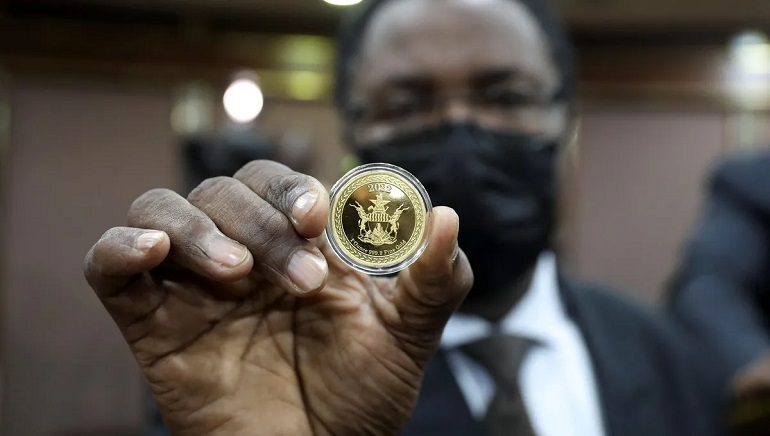From May 8, Zimbabwe has begun circulating digital tokens backed by gold reserves that people can use to conduct peer-to-peer payments and transact with businesses, said Reserve Bank of Zimbabwe Governor John P Mangudya. International gold prices determined by the London Bullion Market Association will dictate the local pricing of the tokens, he added.
The African nation is introducing local digital tokens to reduce reliance on the US dollar. The tokens will be available to purchase via banks, and transactions will be enabled through “e-gold wallets or e-gold cards” held by banks. There is a vesting period of 180 days, after which the tokens can be traded. The minimum price to purchase digital tokens is $10 for individuals and $5,000 for financial institutions, corporates and other entities, said a press release by the central bank.
Mangudya hopes the tokens offer an innovative new payment option to Zimbabwean citizens. “The issuance of the gold-backed digital tokens is meant to expand the value-preserving instruments available in the economy and enhance divisibility of the investment instruments and widen their access and usage by the public,” he said.
The alternative to the US dollar is a bid to shore up the country’s faltering currency, which is officially valued at around 1,000 Zimbabwean dollars for $1, but can sell at almost double the price in the illegal market.















